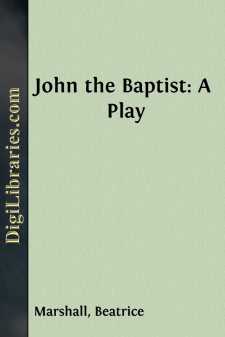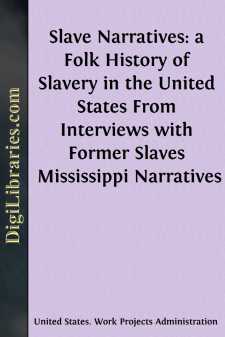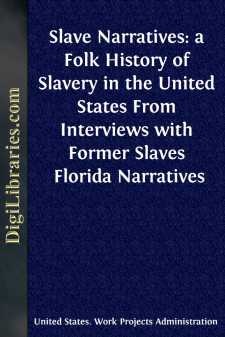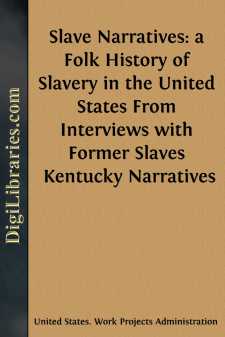Fiction
- Action & Adventure 180
- Biographical 15
- Christian 59
- Classics 6965
- Coming of Age 5
- Contemporary Women 3
- Erotica 8
- Espionage/Intrigue 12
- Fairy Tales, Folklore & Mythology 236
- Family Life 169
- Fantasy 117
- Gay 1
- General 596
- Ghost 32
- Historical 808
- Horror 43
- Humorous 160
- Jewish 25
- Legal 4
- Medical 22
- Mystery & Detective 315
- Political 49
- Psychological 41
- Religious 64
- Romance 159
- Sagas 11
- Science Fiction 730
- Sea Stories 113
- Short Stories (single author) 537
- Sports 10
- Suspense 1
- Technological 8
- Thrillers 2
- Urban Life 31
- Visionary & Metaphysical 1
- War & Military 173
- Westerns 199
Fiction Books
Sort by:
by:
Angela Brazil
The New School "Katrine!" said Gwethyn, in her most impressive manner, "have you noticed anything peculiar going on in this house the last two or three days?" "Why, no," replied Katrine abstractedly, taking a fresh squeeze of cobalt blue, and mixing it carefully with the rose madder and the yellow ochre already on her palette. "Nothing at all unusual. Gwethyn, be careful!...
more...
BOTH GIRLS WERE SO STUNNINGLY PRETTY, AND WORE SUCH ODD, BEWITCHING COSTUMES ON THEIR TANDEM, THAT THE PEOPLE WHO STOPPED TO WATCH THE BEAUTIES AS THEY WHIRLED BY NICKNAMED THEM "THE HEAVENLY TWINS." As Jay Gardiner drove down the village street behind his handsome pair of prancing bays, holding the ribbons skillfully over them, all the village maidens promenading up the village street or...
more...
by:
Jacob Abbott
CHAPTER I. MORNING Early one winter morning, while Jonas was living upon the farm, in the employment of Oliver's father, he came groping down, just before daylight, into the great room. The great room was, as its name indicated, quite large, occupying a considerable portion of the lower floor of the farmer's house. There was a very spacious fireplace in one side, with a settle, which was a...
more...
The evening before Helen Jeffrey's wedding day, the whole household at the rectory came out into the garden. "The fact is," said Dr. Howe, smiling good-naturedly at his niece, "the importance of this occasion has made everybody so full of suppressed excitement one can't breathe in the house." And indeed a wedding in Ashurst had all the charm of novelty. "Why, bless my...
more...
SCENE I Dark shadows flit in groups across the background from right to left. MIRIAM Hadidja, I am afraid! HADIDJA Come! MIRIAM I am afraid. Seest thou not those gliding shadows? Their feet scarce touch the stones, and their flesh is like the shadow of the night-wind. HADIDJA Fool that thou art! Thou art afraid of thy companions in misery and suffering. The same need as thine brings them hither; the...
more...
Maryland[--]-23-37Guthrie AUNT LUCY [HW: BROOKS].References: Interview with Aunt Lucy and her son, Lafayette Brooks. Aunt Lucy, an ex-slave, lives with her son, Lafayette Brooks, in a shack on the Carroll Inn Springs property at Forest Glen, Montgomery County, Md. To go to her home from Rockville, leave the Court House going east on Montgomery Ave. and follow US Highway No. 240, otherwise known as the...
more...
THE AMERICAN GUIDETOPEKA, KANSAS EX SLAVE STORYOTTAWA, KANSASBY: Leta Gray (interviewer) "My name is Clayton Holbert, and I am an ex slave. I am eighty-six years old. I was born and raised in Linn County, Tennessee. My master's name was Pleasant "Ples" Holbert. My master had a fairly large plantation; he had, I imagine, around one hundred slaves." "I was working the fields...
more...
Mississippi Federal WritersSlave AutobiographiesJim Allen, Clay Co.FECMrs. Ed Joiner [JIM ALLENWest Point, Mississippi] Jim Allen, West Point, age 87, lives in a shack furnished by the city. With him lives his second wife, a much older woman. Both he and his wife have a reputation for being "queer" and do not welcome outside visitors. However, he readily gave an interview and seemed most...
more...
FOLK STUFF, FLORIDAJules A. FrostTampa, FloridaOctober 20, 1937 JOSEPHINE ANDERSON HANTS "I kaint tell nothin bout slavery times cept what I heared folks talk about. I was too young to remember much but I recleck seein my granma milk de cows an do de washin. Granpa was old, an dey let him do light work, mosly fish an hunt. "I doan member nothin bout my daddy. He died when I was a baby. My...
more...
Garrard County. Ex-Slave Stories.(Eliza Ison) [HW: Ky 9] Interview with Dan Bogie: Uncle Dan tells me "he was born May 5, 1858 at the Abe Wheeler place near Spoonsville, now known as Nina, about nine miles due east from Lancaster. Mother, whose name was Lucinda Wheeler, belonged to the Wheeler family. My father was a slave of Dan Bogie's, at Kirksville, in Madison County, and I was named for...
more...











